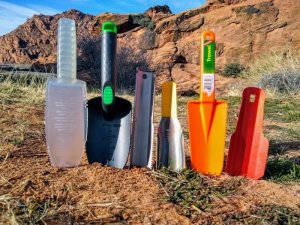LEAVE NO TRACE PRINCIPLES
All of us are responsible for protecting the natural world and places we visit. It’s important that we are conscious of how our actions effect the land, plants, animals, people and entire ecosystems.
Below are the seven commonly known ‘Leave No Trace Principles’ that we can apply anywhere at any time.
The Seven Leave No Trace Principles
- Plan ahead and prepare.
- Travel and camp on durable surfaces.
- Dispose of waste properly.
- Leave what you find.
- Minimize campfire impacts (be careful with fire).
- Respect wildlife.
- Be considerate of other visitors.
Plan Ahead and Prepare
- Research where you’re going and any regulations, rules or special requirements eg track closures, no campfires allowed etc.
- Calculate how much food and particularly water you’ll need. Is there fresh water available or will it need to be treated? Above all, do your homework.
- Check the weather conditions in advance and pack / prepare accordingly.
- If possible, visit your location when it’s not in high use by others, to spread out the impact on the environment.
- Camping overnight? consider the packaging of your food and repack to minimise waste
- Know how to navigate with either map/compass or GPS. Please don’t make a habit of marking with flagging tape or making rock cairns.
Travel and Camp on Durable Surfaces
- A durable campsite surface would be either designated campsites (even those on platforms), rock, sand, dry grasses or even snow. Generally, you’ll find most campsites easily identified.
- Camping a minimum of 200m from fresh water supply (streams and lakes) is iimportant to maintain our waterways.
- Does the trail path looks muddy? don’t walk around the edges – walk through it! Sounds crazy, but by walking around it, you’re contributing to the erosion of the track.
- Walk single file to also help reduce eroson.
Dispose of Waste Properly
- The commonly used phrase ‘pack it in, pack it out’ is essential for minimising your impact. If you’ve gone to all the trouble to bring in say, packaging, you can certainly make the effort to take it out.
- Do not leave any food or leftovers behind. Do not bury them or feed them to animals. Pack it out with you.
- Use any toilet facilities provided (long drops). Otherwise, set up a toilet area over 200m from fresh water supply, dig a whole at least 20cm deep and use this as your toilet. Cover hole once you’ve finished. Pack out any toilet paper or hygiene products.
- To do your dishes, use biodegradable soap and scatter strained dishwater.
Leave What You Find
- Many of Australia’s parks have regulations about the flora and fauna, including the collection of sea shells. Preserve what you see by not touching or taking anything with you.
- If you flip a rock over to see what’s under it, place it back in it’s original place.
- Be careful of introducing or transporting non-native species into an area. Boneseed is an incidious plant that has taken over many pristine areas in Victoria.
- Do not build structures (unless for overnight emergencies) or dig trenches around your tent.
Minimise Campfire Impacts
- We all love a campfire, but they can leave lasting effect on the environment. Where possible, use a lightweight stove for cooking and try a candle or lantern for light.
- If fires are permitted, use any established fire pits.
- Keep fires small. There is no need for a bonfire. Ideally you bring your own wood rather than collecting from around the site. Most campsites that have a campfire don’t have enough dead wood anymore because they’ve been overused.
- Burn all wood and coals so there is nothing but ash. Consequently, make sure you put campfires out completely. If it’s cold to touch, then it’s fine to leave the campsite.
Respect Wildlife
- Please, please observe wildlife for a distance.
- Furthermore, do not try and feed animals, particularly kangaroos. Feeding them damages their health and they can become dependent on handouts from people. Enjoy from a distance.
- Keep your food safely packed away from night visitors such as possums. Securely packed in a car, esky or backpack works.
- If possible, keep pets at home.
- Will you be walking near livestock? Then be mindful of special times such as lambing, mating, raising young, nesting or migrating.
Be Considerate of Other Visitors
- Be respectful of other visitors. Keep the noise down. Be conscious of your bright lighting at night. Plus it can attract insects and animals into your campsite.
- Taking a generator with you? Be mindful of the noise. Same goes with music. Not everyone will like your ‘doof doof’ music. Set a reasonable hour to keep the noise down.
- Always be courteous to others. On the trail, yield to other users.
- If campsites are getting full, negotiate with others on where to camp.
In summary, always endeavour to leave your campsites in a better condition than when you found them.
Remember: take only photos and leave on footprints.
For a video on this topic go to this link here
To return to the home page click here




Recent Comments